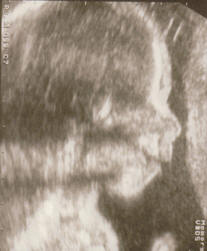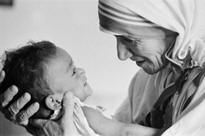Catholic Medical Quarterly Volume 64(2) May 2014
Practical Medical Ethics
Who counts as a person?
Embryos, infants and grown
ups.
Rev. Fr. Daniel C Icatlo
 Common
sense tells us that the manner of acting of any being is
determined by its manner of being. "Essence" dictates the
behaviour and functioning of a subject. A rational being acts in
a rational manner. An irrational being acts by instinct.
"Acting" thus follows "being." By "being" we mean the deepest
core of anything that exists. Now "being" does not exist in a
vacuum. It is received by a subject that makes it "to be this"
or "to be that." In other words, "being human" or "being an
animal." This is the deep and stable substratum of things.
Stability implies that when a being begins to be human, it will
always be human.
Common
sense tells us that the manner of acting of any being is
determined by its manner of being. "Essence" dictates the
behaviour and functioning of a subject. A rational being acts in
a rational manner. An irrational being acts by instinct.
"Acting" thus follows "being." By "being" we mean the deepest
core of anything that exists. Now "being" does not exist in a
vacuum. It is received by a subject that makes it "to be this"
or "to be that." In other words, "being human" or "being an
animal." This is the deep and stable substratum of things.
Stability implies that when a being begins to be human, it will
always be human.
Once we have grasped the existence of a substratum that tells us what a being is, then we can ask how this being acts. While the manner of being is stable and permanent, the manner of acting is not and therefore the manner of acting can never alter the manner of being. Although an ape can start writing, it remains an ape. Similarly, a human being may lose memory. But he remains a human being. To say otherwise is to fall into the error of functionalism which confuses "acting" with "being."
From this reflection, it follows that a human zygote is a human person. If personhood is denied to a zygote, who will decide when personhood is granted? Will we not be led into a subjectivism that uses functionalism as a basis to decide who counts as persons and who do not? The zygote may not "function" as a human person. But the zygote is a person. A disabled person may lose his rational functioning or may never have fully developed it. But he is a person.
 The
zygote has a fully programmed individuality, from sex and aging
to eye colour and aversion to spinach. The personhood of the
person is already there, like the tuliphood of the tulip bulb.
The
zygote has a fully programmed individuality, from sex and aging
to eye colour and aversion to spinach. The personhood of the
person is already there, like the tuliphood of the tulip bulb.
Some argue that personhood develops gradually from zygote to infant. But the subject "I" who was once a zygote is the same one that went through growth and development. Otherwise, we fall again into the error of functionalism, leading us to believe that infants are lesser persons than adults.
It is sometimes argued that the zygote or foetus is only a potential person. But there are no potential persons. All persons are actual, as all apes are actual. Actual apes are potential swimmers and actual persons are potential philosophers. The being is actual, the functioning is potential. The error which is once again functionalism confuses a "potential person" with " a potentially functioning person."
It is claimed that personhood is not a clear concept as different philosophers and scientists define it differently. Personhood is indeed unclear for functionalism. The following questions are not clearly answerable: which features count as proof of personhood? who decides? how much of each feature is necessary for personhood? Once we reject functionalism, personhood is a clear concept.
 It
is sometimes argued that the foetus cannot be a person because
it is part of the mother. Parts cannot be persons. However, the
relation of part to a whole is what logicians call a transitive
relation. If the toe is part of the foot and the foot is a part
of the body, then the toe is part of the body. If the foetus is
part of the mother, then the parts of the foetus must also be
parts of the mother. In which case the pregnant woman has four
hands and four feet, which is absurd. So the foetus is not part
of the mother.
It
is sometimes argued that the foetus cannot be a person because
it is part of the mother. Parts cannot be persons. However, the
relation of part to a whole is what logicians call a transitive
relation. If the toe is part of the foot and the foot is a part
of the body, then the toe is part of the body. If the foetus is
part of the mother, then the parts of the foetus must also be
parts of the mother. In which case the pregnant woman has four
hands and four feet, which is absurd. So the foetus is not part
of the mother.
And so we conclude that all humans count as persons from the moment of conception.
Fr Icatlo is a Doctor of Canon Law who is currently working in Sri Lanka.
